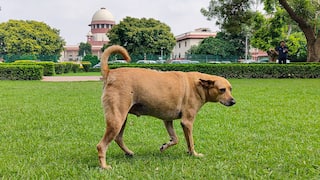Uzbek Child Deaths Case: Three Employees Of Firm That Made 'Toxic' Cough Syrup Arrested In Noida
The investigation into Marion Biotech's role began after reports of 18 children's deaths in Uzbekistan allegedly due to the company's cough syrup surfaced.

The Noida Police on Friday arrested three employees of Marion Biotech Pvt Ltd for producing and selling counterfeit drugs. The accused, Atul Rawat, Tuhin Bhattacharya, and Mool Singh, were linked to the pharmaceutical firm that produced a cough syrup allegedly responsible for the deaths of several children in Uzbekistan last year.
The case was registered at Gautam Buddha Nagar Phase-3 Police Station under various sections of Drugs and Cosmetics Act 1940.
Central Noida DCP Ram B Singh: "We have arrested three out of five accused in the child deaths case related to Marion Biotech Pvt Ltd. The case pertains to the toxic cough syrup sent abroad as the inquiry was done after the incident." Among the five accused are two directors, a chemist, and an operations head of Marion Biotech.
The investigation began after reports of 18 children's deaths in Uzbekistan allegedly due to the company's medicines surfaced. The Central Drugs Standard Control Organisation conducted an inspection and halted all manufacturing activities at the Noida unit of Marion Biotech until the completion of the inquiry in December. The Uttar Pradesh Food Safety and Drug Administration Department suspended the production licence of the company.
India said the "unfortunate deaths" of 18 children in Uzbekistan after purpotedly consuming cough syrups manufactured by India and the incident in Gambia were "not similar" and Tashkent has not formally raised the matter with New Delhi.
In 2022, more than 300 children, the majority of them below five years, in Gambia, Indonesia, and Uzbekistan, died of acute kidney injury. The fatalities were associated with contaminated medicines, news agency Reuters reported citing WHO. The cough syrups available over-the-counter had high levels of diethylene glycol and ethylene glycol, the WHO said in a statement.
“These contaminants are toxic chemicals used as industrial solvents and antifreeze agents that can be fatal even taken in small amounts, and should never be found in medicines,” the WHO said.
Related Video
Breaking News: Delhi Police Crack Down After Turkmen Gate Bulldozer Action Sparks Unrest





































